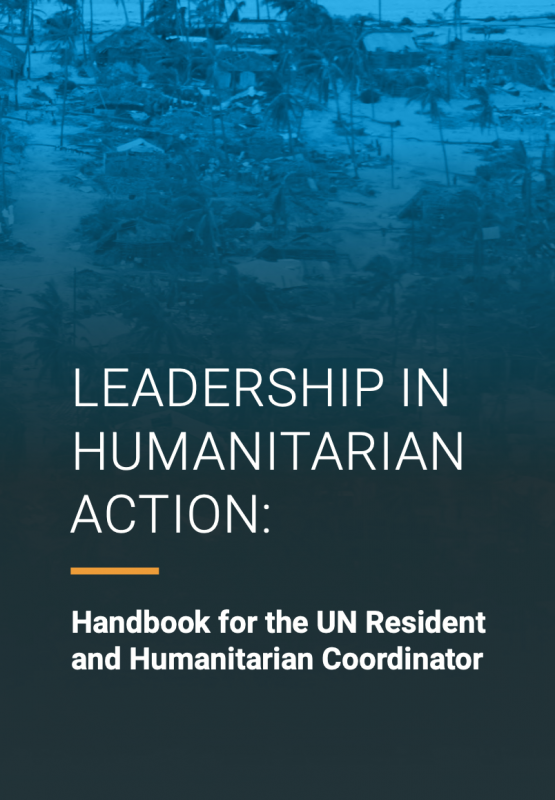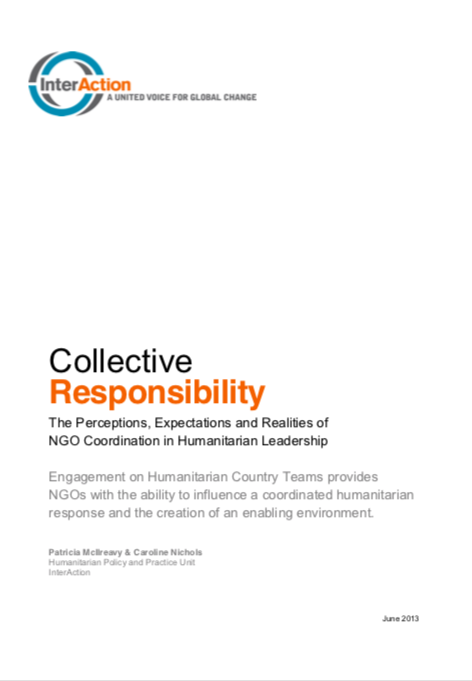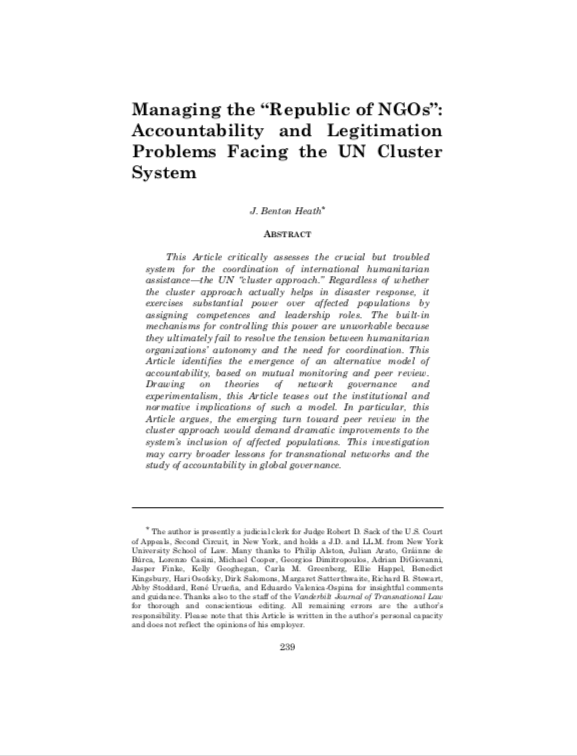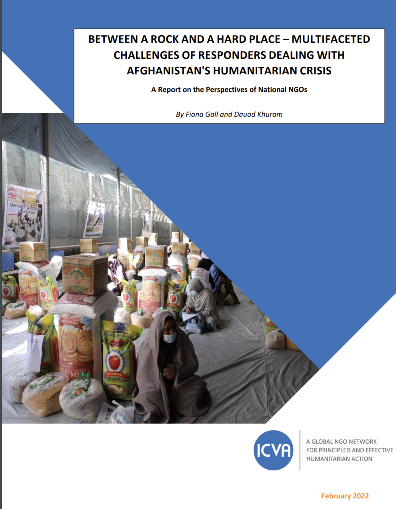
Leadership in Humanitarian Action: Handbook for the UN Resident and Humanitarian Coordinator
Humanitarian coordination , Inter-Agency Standing Committee (IASC)
The Handbook serves as a guide to the normative framework for humanitarian action, operational approaches, coordination structures, and available tools and services that facilitate the mobilization of humanitarian assistance. It particularly emphasizes the roles and responsibilities of the UN...




